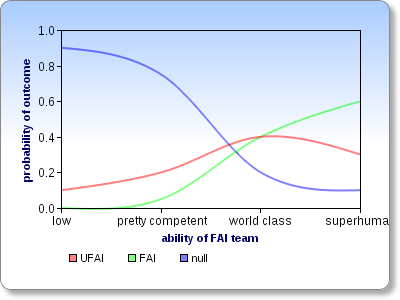Today I was appointed the new Executive Director of Singularity Institute.
Because I care about transparency, one of my first projects as an intern was to begin work on the organization's first Strategic Plan. I researched how to write a strategic plan, tracked down the strategic plans of similar organizations, and met with each staff member, progressively iterating the document until it was something everyone could get behind.
I quickly learned why there isn't more of this kind of thing: transparency is a lot of work! 100+ hours of work later, plus dozens of hours from others, and the strategic plan was finally finished and ratified by the board. It doesn't accomplish much by itself, but it's one important stepping stone in building an organization that is more productive, more trusted, and more likely to help solve the world's biggest problems.
I spent two months as a researcher, and was then appointed Executive Director.
In further pursuit of transparency, I'd like to answer (on video) submitted questions from the Less Wrong community just as Eliezer did two years ago.
The Rules
1) One question per comment (to allow voting to carry more information about people's preferences).
2) Try to be as clear and concise as possible. If your question can't be condensed into one paragraph, you should probably ask in a separate post. Make sure you have an actual question somewhere in there (you can bold it to make it easier to scan).
3) I will generally answer the top-voted questions, but will skip some of them. I will tend to select questions about Singularity Institute as an organization, not about the technical details of some bit of research. You can read some of the details of the Friendly AI research program in my interview with Michael Anissimov.
4) If you reference certain things that are online in your question, provide a link.
5) This thread will be open to questions and votes for 7 days, at which time I will decide which questions to begin recording video responses for.
I might respond to certain questions within the comments thread and not on video; for example, when there is a one-word answer.

As a long-time employee I'd actually say that this is a good thing because it shows that there is a meritocratic structure where new arrivals can rise quickly due to good performance.
SIAI is an unconventional organization where dedication is more important than social class and the traditional status hierarchies of the external world do not apply internally. To put it in a more contrarian fashion, "we play by our own rules".
Luke also wasn't previously just an intern, he was a research fellow for a couple months.
Rising from intern to executive does occur in the business world, it just generally takes longer. This makes sense given that the average large corporate is much bigger than SIAI.
To throw out an argument against the grain of the above, let me point out that the pool of dedicated and productive Singularitarians is so small that joining that pool to begin with confers enough status to achieve significant influence within the organization. You, dear reader, could be the next person to spend time closely with us and give valuable input to our core agenda!